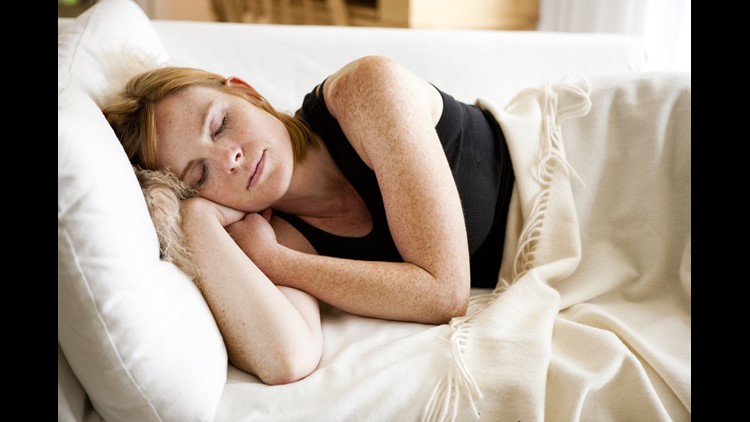HARTFORD — Getting a good night’s sleep is so important for our health and well-being but 10 percent of Americans have insomnia while 30 percent of Americans have difficultly either falling or staying asleep.
When you don’t sleep well, it makes you tired the next day, gives you a headache, makes you irritable and less likely to concentrate which can increase the risk of a host of accidents and hurt feelings as you navigate through the stresses of the day. Not sleeping can also prevent natural drops in blood pressure and heart rate that occurs while you sleep which increases the risk for heart disease and stroke. Finally, the cortisol you pump out to get through the day when you are overtired also gives you the munchies and makes it hard not to overeat.
In a survey of over 4,000 people, 20 percent of people used sleeping pills within the past year and 20 percent of them used it daily for over a year. These drugs can be effective for short-term use, up to 14 days, but not for long-term use. Over the counter sleep aids contain an antihistamine which can make people sleepy and many contain a pain reliever such as acetaminophen or ibuprofen. When used for the short-term, they are very safe products.
Prescription sleeping pills are much more potent and more effective than over the counter sleep aids but they can cause sleep walking, daytime sleeplessness, and forgetfulness so again, take them if you need to but only for a couple of weeks. In one study, people taking sleep medications long-term had a higher risk of developing dementia but they are not sure whether pre-dementia negatively impacts sleep or if these drugs promote dementia. We also have melatonin which is a natural supplement. Melatonin looks to be safe in studies but the evidence supporting its benefit is actually pretty low. Based on poorer quality studies it looks like it gives people about 10 to 15 extra minutes a night. One limitation though, since the product is a supplement, the amount of the active ingredient on the bottle may or may not actually be in the pills that were studied so a fully potent product might be more effective.
Don’t wait 14 days, starting on day one you should improve your sleep hygiene. No TV, computer, or smartphone use an hour before bedtime; use the sleep mode on your smartphone in the later evening so you have less exposure to the blue light spectrum; making your room very dark while you sleep; going to sleep when you feel tired and not pushing it an extra 30 minutes; and resolving underlying issues such as pain or life stressors wherever possible. If you cannot do it yourself, there are sleep specialists that can work on cognitive behavioral techniques that can help so if you are one of the long-term sufferers of insomnia, ask your doctor if this could be right for you.
– Dr. Michael White from the UConn School of Pharmacy



